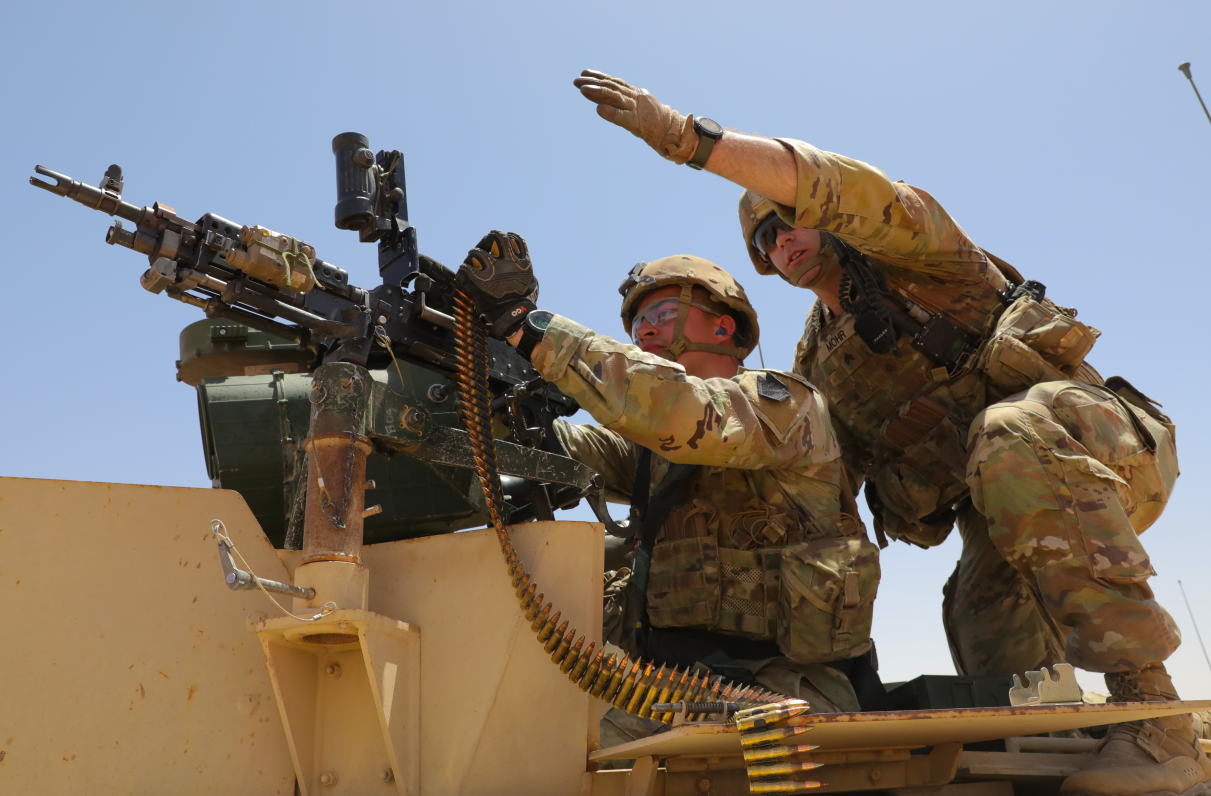(This article by MOAA's Government Relations staff originally appeared in the August 2024 issue of Military Officer, a magazine available to all MOAA Premium and Life members. Learn more about the magazine here; learn more about joining MOAA here.)
National Guard and Reserve forces are a critical component of the all volunteer force, now as much as ever. The frequency of mobilizations for the reserve component (RC) has increased in the past two decades, and now legislation is required to improve the quality of life for servicemembers and their families and to support recruiting and retention.
[NEW FOR PREMIUM AND LIFE MEMBERS: Guard and Reserve Retirement Guide (PDF)]
Today, RC troops are called on to respond to natural disasters, restore order supporting law enforcement, patrol our borders and waterways, and keep pace with planned deployment rotations worldwide.
The operational tempo for RC deployments has increased while the recruiting crisis is ongoing. For example, in 2020, the National Guard had its largest deployment since World War II. Despite lessons learned from the COVID-19 pandemic, a cohort of uniformed officers for the U.S. Public Health Service Ready Reserve is still not fully established. A recruiting crisis impacts all uniformed services, including the Coast Guard, which is deployed heavily in support of national strategy in the Pacific and requires an investment in people.
“The service cannot maintain the same level of operations with this gap. We cannot do the same with less,” Coast Guard Commandant Adm. Linda Fagan told lawmakers early this year.
[FROM 2022: Coast Guard Commandant Charts the Path Forward]
The need to support the all-volunteer force and improve the quality of life for servicemembers and their families guides MOAA’s legislative priorities.
The value proposition is critical to recruiting the next generation of guardmembers and reservists. Chief among those is improving benefits such as health care and special pay parity for skilled professionals, including flight pay for pilots and hazard pay for explosive ordnance disposal technicians.
MOAA has been hard at work advocating to improve the quality of life for servicemembers, focusing on several key issues and legislative efforts. Here is a look at several of them:
Legislative Initiatives
- RC dental coverage: This would provide TRICARE Dental Program coverage to guardmembers and reservists with zero premiums and cost sharing to support dental readiness, using language from the MOAA-supported Dental Care for Our Troops Act.
- GI Bill parity: The National Guard has approximately 22,000 servicemembers deployed overseas. To effectively respond to rising operational demands and maintain readiness, the reserve components must prioritize comprehensive premobilization training and ensure unit preparedness across the entire enterprise. The least Congress can do is ensure time served on active duty for training qualifies for educational assistance under the Post-9/11 GI Bill.
- RC-specific Transition Assistance Program (TAP): MOAA acknowledges that servicemembers in the reserve components face a vastly different situation compared to those leaving active duty. Many of the TAP requirements are unnecessary for transitioning National Guard and Reserve members, who would benefit more from training tailored to their unique needs. Similar to the active component, a tiered system could be established that provides essential information for those returning to their civilian jobs after deployment.
- Tax incentives to hire and retain reserve component members: The majority of employers rightfully support their employees who are called to deploy and serve the nation. But during activations, these businesses temporarily lose valuable talent. Tax credits can and have been provided to assist small businesses when an employee is activated for extended military duty. Tax strategies should demonstrate appreciation for employers who accommodate the military commitments of their skilled workforce.
- Parental leave: The recent House version of the NDAA seeks expansion of Coast Guard parental leave this year. The House bill would expand parental leave to the Coast Guard Reserve, creating parity with DoD reserve components.
[RELATED: National Guard Makes Changes to Child Care Program for Troops During Drill Weekends]
Serving one’s nation should not be overly burdensome. If efforts fail in implementing these crucial measures, DoD can expect to face ongoing challenges in recruiting courageous and talented individuals.
How You Can Help
Join our Legislative Action Center to send a message to Congress to invest in
servicemembers in the reserve component. You can also speak with your representatives’ and senators’ staff members by using MOAA’s toll-free line to the U.S. Capitol switchboard: (866) 272-MOAA (6622).
When MOAA Speaks, Congress Listens
Learn more about MOAA’s key advocacy issues, and contact your elected officials using our messaging platform.
